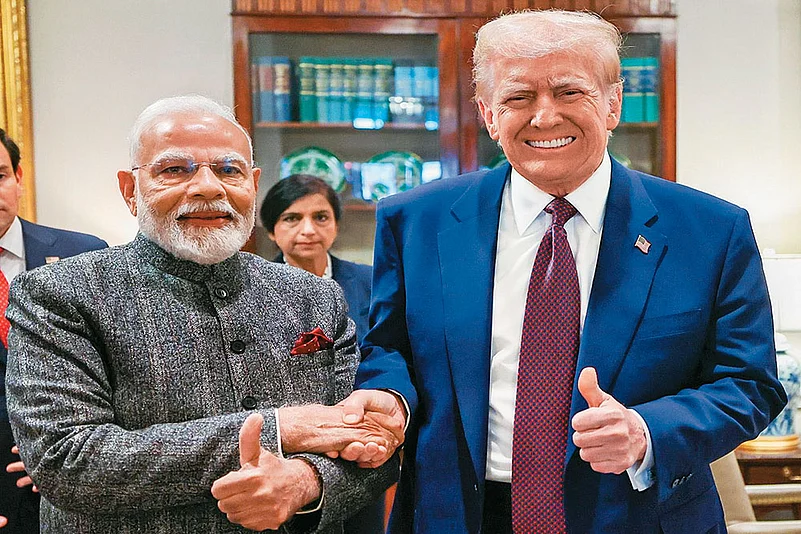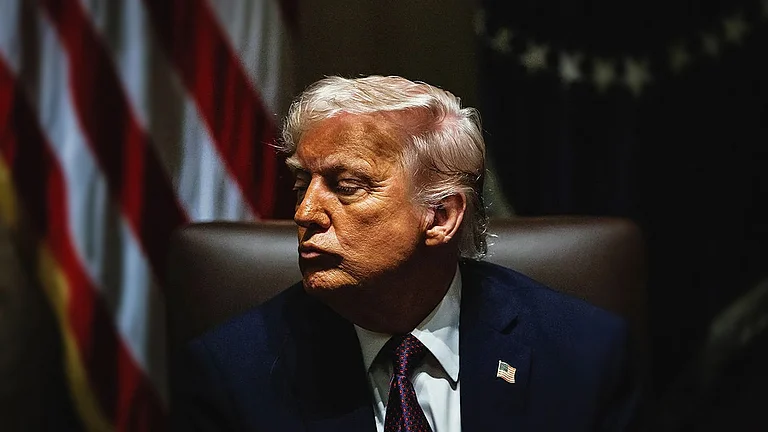US President Donald Trump recently hinted that the US is close to finalising a deal with India. Meanwhile, slapped tariffs on 14 nations on Monday, including Thailand, Myanmar, Bangladesh, South Korea and Japan. Except India is still eyeing the extended deadline.
"We've made a deal with the United Kingdom, we've made a deal with China, we've made a deal-we're close to making a deal with India. Others we met with, we don't think we're going to be able to make a deal. So we just send them a letter," he said at the White House.
"We're sending out letters to various countries telling them how much tariffs they have to pay. Some will maybe adjust a little bit depending if they have a cause, we're not going to be unfair about it," he added.
Trump has recently given the ultimatum to finalise a trade deal before the July 9 deadline or face higher tariffs. On April 2, the Trump administration has imposed a 26% "reciprocal tariff" on Indian goods. That shock was temporarily softened to a 10% baseline tariff for 90 days to allow negotiations. With the 90-day reprieve set to expire on July 9, Trump agreed at the last minute to push the deadline to August 1. The US is also using their "maximum pressure playbook" to fasten the deals with countries, Treasury Secretary Scott Bessent told CNN recently.
The Push for ‘Reciprocal’ Trade
Trump argues that American goods face higher tariffs and barriers abroad than foreign goods do in the US, and he wants to even the playing field. In Trump’s view, if India (or any country) charges steep duties on US products, the US should match them in kind. “If they charge us, we charge them... If they’re at 25, we’re at 25,” Trump said earlier this year to explain his approach. His team also pointed out to examples of tariff asymmetry–for instance, India’s 100% import duty on high-end motorcycles versus America’s mere 2.4% tariff on the same. By threatening reciprocal tariffs, Washington hopes to pressure trading partners to lower their barriers.
Last-Minute Negotiations and Hurdles
Reports suggested that India and US negotiators scrambled to craft a “mini” trade deal to avert the tariff spike. Talks went down to the wire by the July 9 deadline (the end of the 90-day tariff suspension), but key sticking points proved difficult to resolve. Agriculture and dairy emerged as major hurdles: Washington demanded greater access for American farm produce and dairy products, which India firmly resisted to protect its small farmers and food standards. New Delhi has long shielded its dairy sector and was unwilling to slash duties or accept genetically modified crops and hormone-treated dairy into its market–politically sensitive concessions it has avoided in past trade pacts.
India has made its position clear in ongoing talks with the United States for an interim trade deal. The government has set firm limits, especially in sensitive areas like agriculture and dairy. “India has drawn its red lines… now the ball is in the US court,” a PTI report said citing sources.
If No Agreement?
If no agreement materialises by the new timeline, the full 26% tariff rate will kick back in, hitting a wide range of Indian exports and potentially sparking a new trade skirmish. The US is India’s largest trading partner, buying over $86.5bn in Indian exports last year. A 26% additional tariff would hit everything from textiles and apparel to auto parts, machinery, jewellery and more.
Flagship industries would feel the pain. For example, India’s thriving garment and leather exporters would suddenly face steep tariffs, eroding their competitive edge. Indian-made cars and auto components, engineering products, and gems and jewellery – all key export sectors – could see demand slump if their prices jump overnight.
However, Commerce Minister Piyush Goyal has emphasised that India will not make any deal under pressure and will proceed “when [the deal] is completely finalised and aligns with national interests.”






























